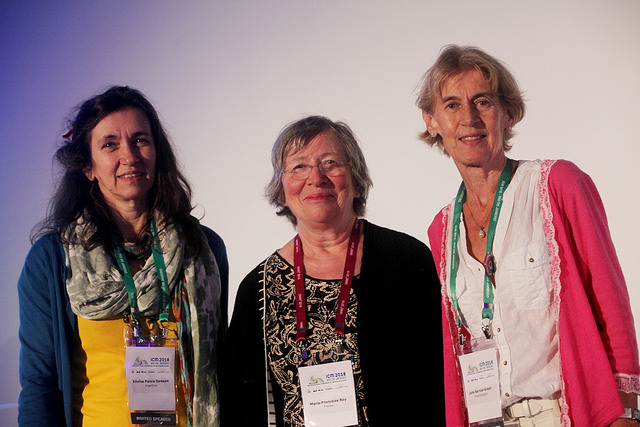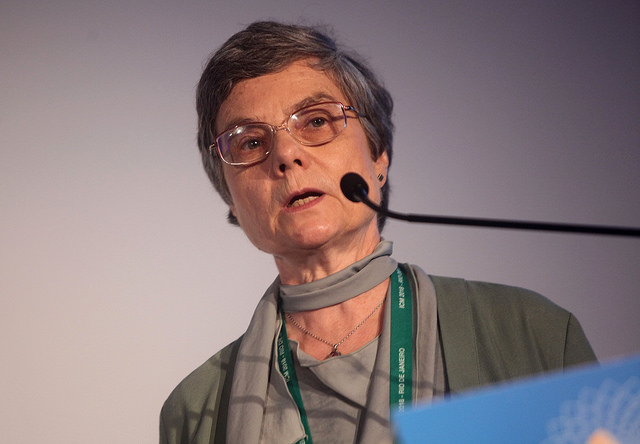August 2, 2018, 9:15 pm

60 Fields Medals have been awarded since 1936, but only one woman has ever received the prestigious medal in the 82 years since the first medal was awarded. Of eight awards announced at the 2018 International Congress of Mathematicians (ICM 2018), no woman won a prize. There are 200 speakers at the meeting, over 9 days, and only 15% are female. Why is representation of women so poor in the world of math?
‘The Gender Gap in Mathematical and Natural Sciences from a Historical Perspective‘ session at ICM 2018 brought international thinkers together to discuss why, although female participation at ICM, and in STEM subjects in general has grown steadily in recent years, representation is still so far from equal. Speakers suggested a myriad of factors that contribute to the lack of women at the top of mathematics and physics.
Read more:
Chair of the Women’s Committee on Mathematics (CWM) of the International Mathematics Union, France’s Marie-Françoise Roy, said advanced are happening, citing the first World Meeting for Women in Mathematics, held on the eve of ICM 2018 in Rio, as an example. “We had 350 women from more than 60 countries,” she said.
Roy described an international survey she conducted to measure the differences between men and women in science according to regions, countries and areas of activity. 45 thousand math professionals from all over the world responded to the study.

Caroline Series
British mathematician June Barrow Green outlined the historical timeline of visibility of women in Mathematics since the 18th century, outlining a series of obstacles and discrimination. “There were men who rejected us and others who did not even believe in the existence of mathematical women,” she said. The highest numbers of female participation among mathematics professionals are in Western Europe, while the lowest rates are in developing countries.
Argentine physicist Silvina Ponce-Dawson presented the International Conference of Women in Physics, which takes place every three years. In physics, as in math, there is a wide gulf between men and women, she said, citing surveys in which female physicists report that they advanced more slowly than men. Interviewees pointed out the difficulty of reconciling motherhood and career and discriminatory attitudes causing barriers in their chosen profession. “Even so, the vast majority say they do not regret choosing physics,” Silvina said.
In an enthusiastic debate the followed, many registered their alarm at the fact that no women were awarded prizes at ICM 2018. Women are enjoying increased representation on award panels (there are three on the Fields’) but moderator and CWM vice-chair, Caroline Series urged the audience nominate more women for big awards.
Silvina described an “unconscious bias” in the hiring and promoting of women that is practiced by both genders as another important obstacle to be overcome.